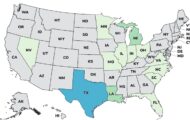A new federal safety standard for magnets to prevent ingestion injuries and deaths has been approved by the Consumer Product Safety Commission (CPSC). These high powered magnets have been linked to several deaths and many serious injuries, some requiring surgery to remove the product.

When these high powered magnets are swallowed, they can attract to each other or to other material that attracts to magnets, even through internal body tissue. This can cause perforations, twisting or blockage of the intestines, infection, blood poisoning, and death. About 26,600 magnet ingestions were treated in hospital emergency rooms from 2010 through 2021, and cases have been rising since 2018.
There are at least seven deaths including the ingestion of hazardous magnets that have been reported to date. Two of those deaths were outside the United States. Most of these incidents involved magnet sets. These products present an unreasonable risk of injury, and less stringent methods, such as safety messaging, have historically been ineffective, according to CPSC.
The new standard requires loose or separable magnets in some products to be either too large to swallow, or weak enough to reduce the risk of internal injuries when swallowed. If the magnets fit into a small parts cylinder, then they must have a flux level of less than 50 kG2 mm2.
CPSC established a mandatory federal standard for magnet sets in 2014, but the U.S. Court of Appeals for the Tenth Circuit overturned that standard in 2016. After the standard was overturned, magnet ingestions and injuries increased.
The new federal safety standard for magnets applies to consumer products that are “designed, marketed, or intended to be used for entertainment, jewelry (including children’s jewelry), mental stimulation, stress relief, or a combination of these purposes, and that contains one or more loose or separable magnets.” It does not include products that are sold or distributed solely to school educators, researchers, professionals, or commercial or industrial users. And it does not apply to toys for children under the age of 14, because the CPSC’s mandatory toy standard already covers those products.




